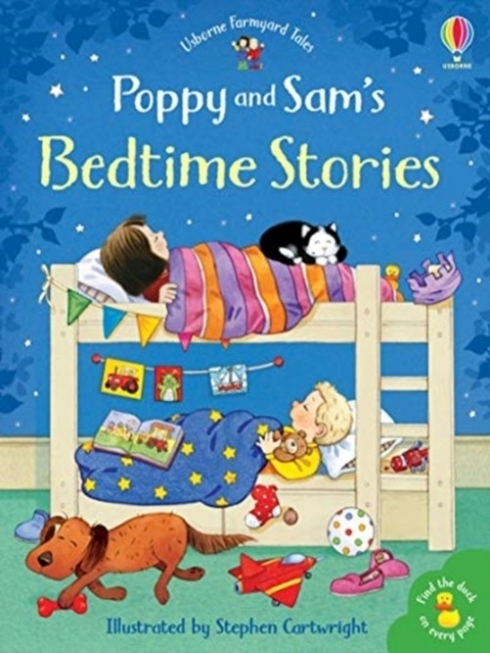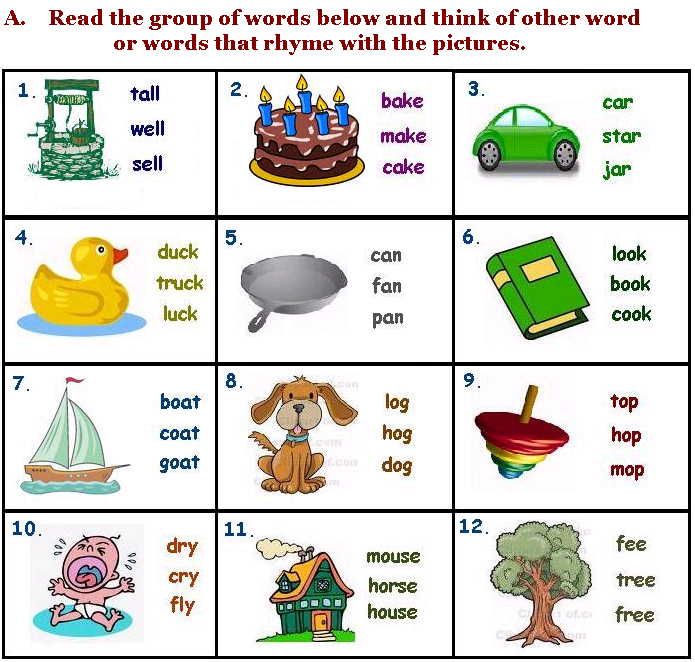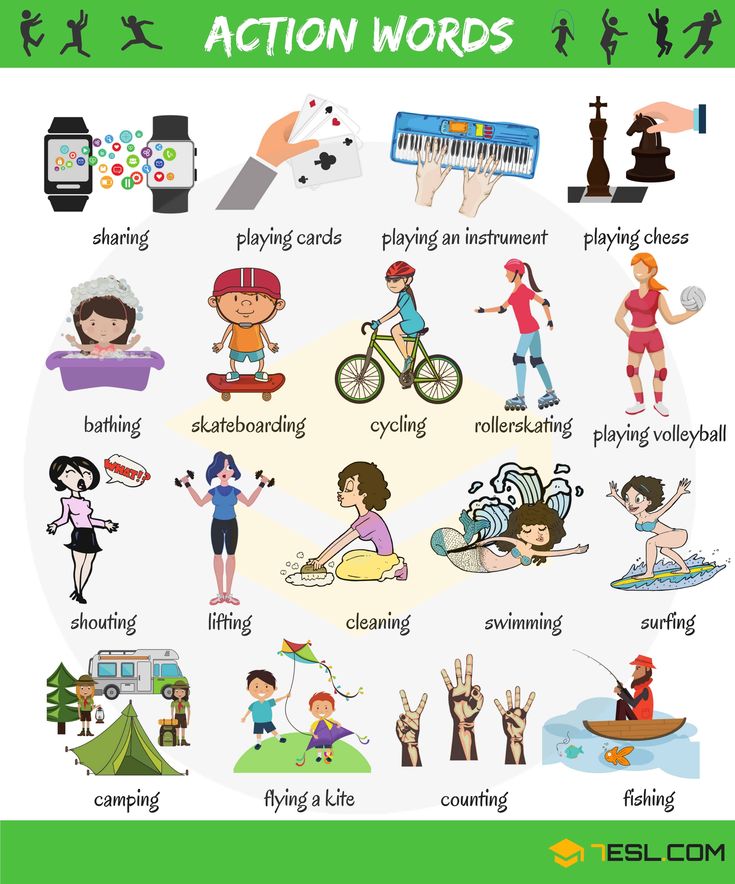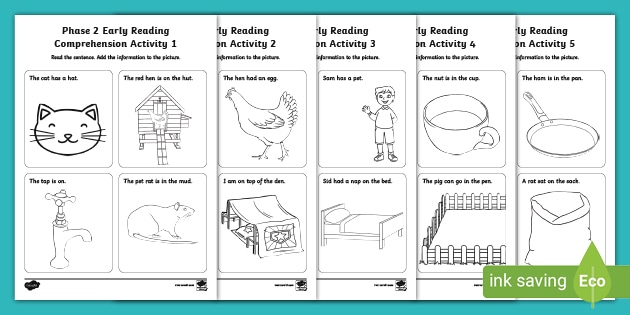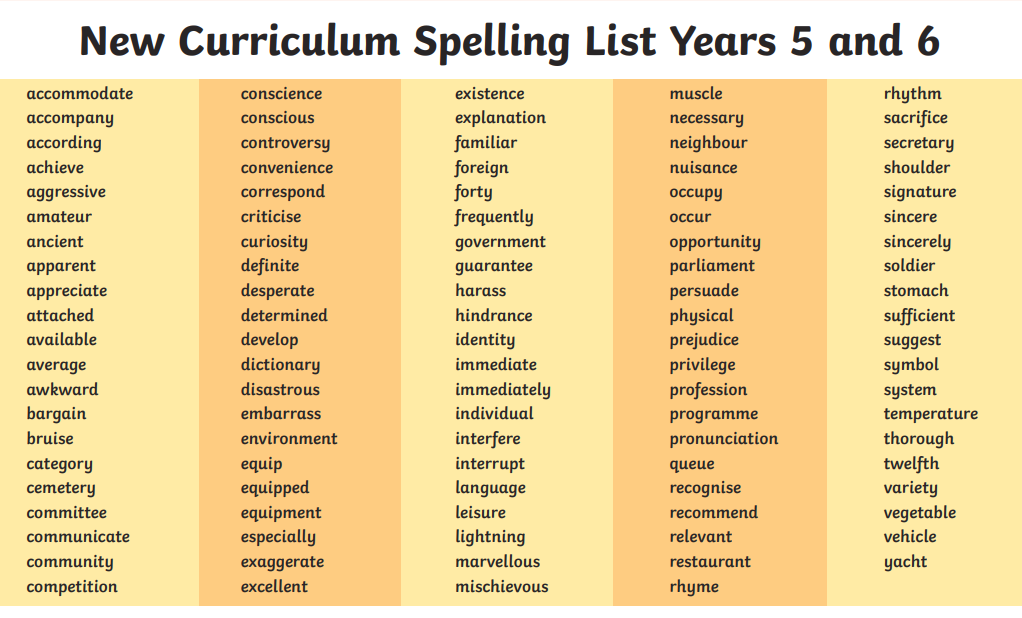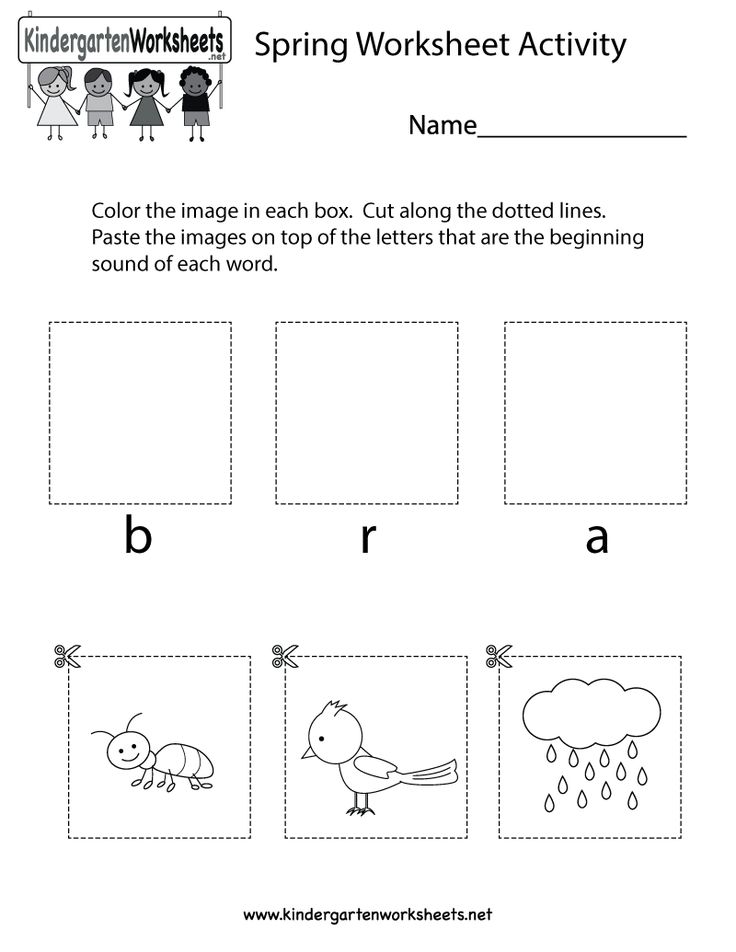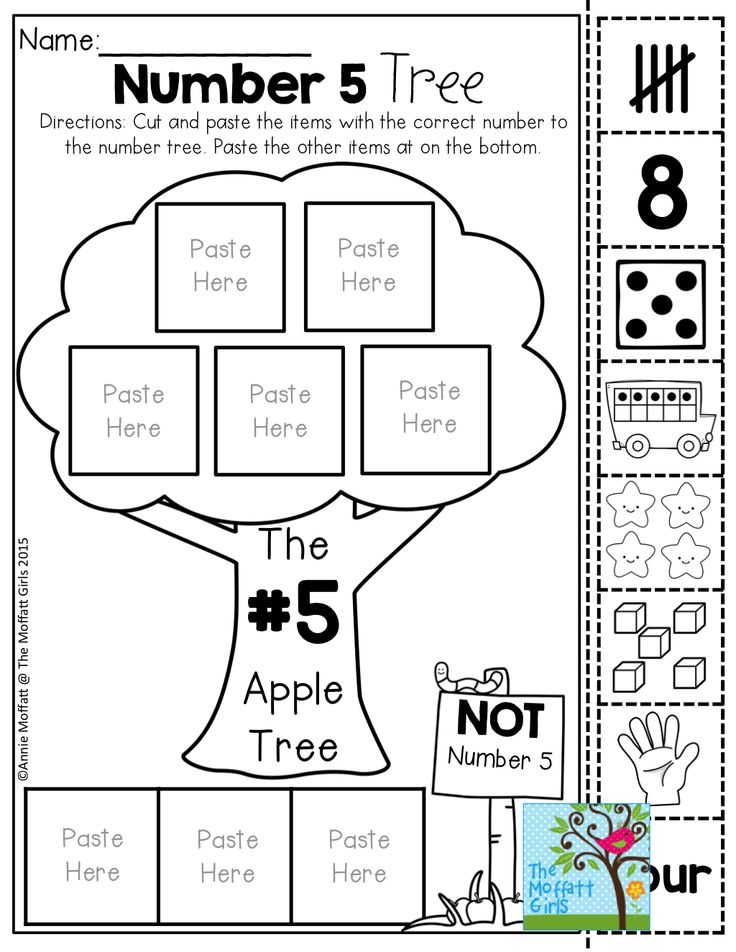Some bedtime stories
12 Bedtime Stories for Kids (For Sweet Dreams)
Bedtime stories for kids are as old as bedtime itself, but do you know how to make them more enjoyable? Do you know about the benefits of bedtime stories?
We’re helping our fellow parents out by highlighting the importance of bedtime stories and sharing 12 bedtime stories you can add to your collection.
Table of Contents
- Bedtime Stories for Kids
- The Importance of Bedtime Stories
- What Makes a Good Bedtime Story?
- Tips for Making Storytime More Interesting
- And So To Sleep
Bedtime Stories for Kids
Whether you want cute, funny, or fantastical, these bedtime stories for kids deliver.
Callista And The Puma
This tale is from Argentina and tells the story of a young girl, the friendship she develops with a wild puma, and how kindness is repaid.
Once there was a girl named Callista. Her father was a soldier, and after the country in which she was born, Spain, invaded South America, she moved to Argentina with her family.
The people who lived in Argentina were angry the Spanish had taken over their land, so they surrounded the camp in which the Spanish families were living, hoping to make them leave.
Callista was told not to leave the camp, but she was hungry. So, one day, she snuck out to find food.
As she explored the jungle, she came across a cave where a mother puma had just given birth. Callista helped the mother puma clean the cubs and found food for her to eat.
One day the native people found Callista, and she was scared. However, they did not harm her and instead took her back to their village, gave her food, and looked after her. Callista felt loved and at home and lived there a long while.
Then, the Spanish soldiers attacked the village, found Callista, and took her back to the camp. Her father was very angry with her and sent soldiers to tie her to a tree in the jungle as punishment. She was there for days.
The village people were scared she might die, but they were also scared of the Spanish soldiers. After three days, they went to try to rescue Callista but feared she would be dead. However, when they got to the trees, Callista was fine.
After three days, they went to try to rescue Callista but feared she would be dead. However, when they got to the trees, Callista was fine.
The puma Callista cared for had come back to look after her.
The villagers untied Callista and took her home with them, where she lived a long and happy life.
The Unexpected Rock
This story is told by the Miwok tribe, who live in what we now call Yosemite. It reveals how the rock formation Tutokanula, or El Capitan, grew out of the earth overnight.
One day two children were playing in a stream. When they got out, they were chilly, but the girl saw a soft, mossy area in the sun.
“Let’s go and sit there,” she said, “It will be warm in the sun.”
The children laid on the moss and soon fell asleep. As the day went on, the rock inched upwards to keep them close to the sun and warm. The children were so comfortable they stayed asleep.
At dinner time, the children’s family searched everywhere but could not find them.
Then coyote sniffed the ground, followed the children’s trail, and said, “They must be on top of this new rock.”
Antelope was the best jumper, and the family asked him to get the children, but he could only reach a short way up the rock.
Grizzly bear was the best climber, so they asked her to get the children, but she could only reach a little higher than antelope.
All of the animals tried — jackrabbit, raccoon, even mountain lion, but none could reach the children.
“Let me try,” said the inchworm, and all of the animals laughed.
“You are too small,” they said. “How could you possibly do what we couldn’t?”
But the children’s family asked him to try.
Slowly, slowly, the inchworm passed the points the other animals had reached. Finally, he got to the top and woke the children by crawling on their faces and led them down the mountain.
That day, the Miwok named the rock Tutokanula in honor of the inchworm, the tiny creature who achieved great things.
The Reward
The Reward is a cautionary tale from India and warns against the dangers of being greedy.
There once was an emperor named Akbar. He went hunting in the woods, but when it started to get dark, he became lost. A young boy, Mahesh, heard the emperor calling for help, went into the jungle, and led him back to the palace.
As a reward, the emperor took a ring from his finger and gave it to Mahesh.
“Bring this ring back to the palace in the morning, show it to the guards, and tell them to let you in,” said the emperor, “Then I can reward you for your kindness.”
The next day Mahesh came back to the palace, showed the ring to the guard, and asked to see the emperor. However, the guard was a greedy man and told Mahesh, “I will only let you in if you give me half of your reward.”
Mahesh agreed and went to see the emperor.
“I would like 50 lashes as my reward,” said Mahesh.
The emperor tried to talk him out of it, but Maresh insisted.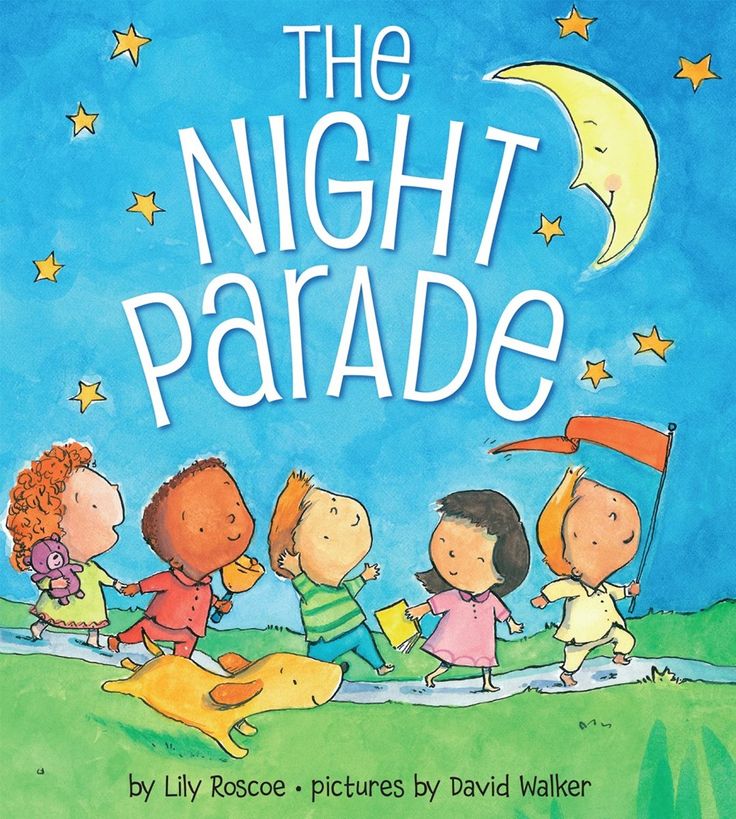 After the 25th lash, Mahesh stopped the emperor and explained about the guard.
After the 25th lash, Mahesh stopped the emperor and explained about the guard.
The emperor was very angry with the guard. He went out and gave the guard the remaining 25 lashes and fired him on the spot.
Then the emperor asked Maresh again what he would like as a reward.
“I promised the guard half of everything,” Maresh said, “So I do not want any further reward.”
So, instead, the emperor gave Mahesh’s family a new home and all they needed to enjoy a happy life.
The Mermaid’s Ring
A fairytale from Scotland, The Mermaid’s Ring shows that what you want and what’s right for you can be two very different things.
One day a young fisherman accidentally caught a mermaid in his net. Legends say if you catch a mermaid, she must grant a wish if you let her go.
“I wish the girl I like would love me forever,” he said.
“Why do you like her?” asked the mermaid.
“Because she is the prettiest girl in the land.”
The mermaid thought for a while and handed the boy a magical ring.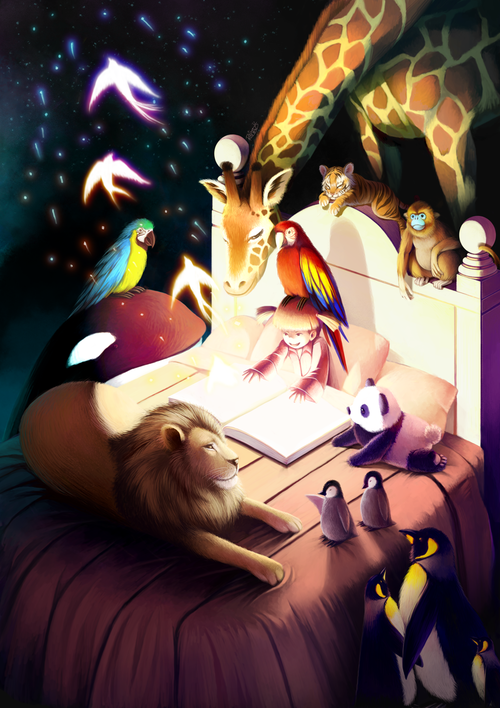
“Give this ring to the girl you want to spend the rest of your life with,” she said, “but you must wait one full year from today before it will work.”
The boy took the ring, and on his way home, he passed a homeless girl.
“Please, sir,” she said, “Can you spare something to eat? I will work for you in return.”
The boy didn’t have much, but he agreed to share his food with the girl if she helped him put away his nets. They shared his food, and the girl left while the boy crawled into bed and dreamed of his love.
Every day for a month, the girl would help him with the nets, and he would share his food. Then one day, she was not there. The boy was worried, went to look for her, and found her asleep in his fishing shed.
The boy was ashamed that he never thought about where the girl would sleep. He woke her up, let her sleep by his fire, and then added a room to his home for her.
“You can sleep here for the next 11 months,” he told her. “But then my wife will move in, and you will have to leave. ”
”
The next day, the girl was not waiting to help with his nets, and he was angry.
“I gave her food and a room,” he said, “and this is how she repays me?”
He dropped the nets and burst angrily through his front door.
The boy couldn’t believe his eyes. His little home had never been so clean. His bed was washed and made, there was a pile of chopped wood by the fire, and a pot of stew waited for him on the fire.
Again, the boy felt ashamed. The girl had worked hard all day and made his home more lovely than he ever had.
They ate together, and the girl left for her room while the boy crawled into his clean bed and dreamed of his love.
As the months passed, the boy would ask the girl to stay and talk before they both went to sleep in their rooms. They shared stories of their families, and the boy spoke every night of his love.
And then one morning, the boy awoke to find the girl waiting by the door with her things under her arm.
“What are you doing?” asked the boy.
“It is time for you to marry your love,” she said, “So I must go.”
The boy hadn’t realized a full year had passed. He grabbed the ring and ran to the village to find his love. When he found her, the boy saw that she looked exactly the same, but he no longer felt the same way.
So he ran back to his home and chased after the girl.
“Did you find your love?” she asked.
“Yes and no,” said the boy, “I found an ordinary girl in the village, but now that I am with you, I know I have found my love.”
And so the boy gave the girl his ring, and they spent the rest of their lives together.
A Tale Of Māui
Māui is a folk hero in Polynesian mythology. Rarely worshipped as an actual god, he is seen as a good-natured trickster whose deeds were intended to better the lives of the Polynesian people.
Māui was a curious being and wanted to know where fire came from. He thought that if he put out all of the fires in the village, he would be able to see how they were relit.
Māui’s mother was the rangatira, leader of the village.
“Someone will have to go and ask Mahuika, the goddess of fire, for more,” she said.
So Māui, who was also Mahuika’s grandson, went to ask for more fire. Her cave was inside the burning mountain, and when he arrived and asked for more fire, Mahuika gave him one of her burning fingernails.
But Māui put the fire out and asked for another. Again and again, he did this until Mahuika had no fingernails and only one toenail left. Mahuika was very angry and sent fire to chase him, but Māui called on the weather god who came and put the fire out.
Mahuika threw her last toenail at Māui but missed. The toenail landed in the Mahoe, Tōtara, Patete, Pukatea, and the Kaikōmako trees. The trees held the fire deep in their branches, for it was a gift from the gods.
Māui took dry branches from the trees, took them to the village, and showed the villagers how to rub the branches together and release the fire.
This is how people discovered how to make fire.
The Emperor’s New Clothes
Danish author Hans Christian Anderson wrote many well-known fairy tales, many of which have been retold and adapted into movies. One of his less well-known stories is The Emperor’s New Clothes.
There was once an emperor who didn’t care about ruling his land. Instead, all he cared about was living in his palace, having the finest food and drink, owning the most expensive things, and most of all, wearing the most beautiful clothes.
One day some crooks came to the land. They told the emperor they had the finest cloth in the world, but it was magical. Only the smartest, most brilliant, most influential people could see it, and anyone who was not brilliant, intelligent, or important could see nothing.
When the emperor was shown the cloth, he could see nothing at all, and he was scared.
“If people find out I am not clever, or smart, or important, they will choose another emperor,” he thought. “Then, I will not be the most important person in the land, and the finest things will not surround me. ”
”
So the emperor told the crooks that yes, it was the finest cloth he had ever seen and asked them to make an outfit for his grand parade.
On the day of the parade, everyone in the kingdom came to see the emperor. They had all heard about the magical cloth and wanted to see it for themselves.
The giant parade began, and the emperor walked down the great National Mall. Nobody could see the magical clothes, but everyone was too afraid to speak up.
A child then pointed at the emperor and asked, “Why isn’t he wearing any clothes?”
This made other people brave enough to speak up, and soon, almost the entire kingdom was talking about the silly emperor. He was so worried about beautiful clothes, expensive things, and what people thought, he walked down the street naked rather than telling the truth.
You Need A Lion’s Whisker
This fairy tale from Ethiopia tells the story of a woman who learns there are no shortcuts and that patience, perseverance, and hard work are essential.
Leeya married a man who already had a son. She tried to be friends with the boy, but nothing she did worked. So Leeya went to see the medicine man in the mountains.
“Please help me,” Leeya said. “I want the boy to be happy and to be friends with him. I’ve tried for an entire week, but nothing works.”
“I can help, but first, I need you to pluck a whisker from a living lion and bring it to me,” he said.
Leeya was afraid, but she wanted to be friends, so she went to where the lions lived.
Every day for a month, Leeya would put out a bowl of meat and watch from behind a rock when the lion came to feed.
The next month she did the same thing but knelt up, so her head was showing. The next month she stood taller so the lion could see her from the waist up, and the following month she stood beside the rock.
For the next six months, she inched closer to the lion. In the tenth month, she stood next to him while he ate. In the eleventh, she held the bowl, and in the twelfth month, she would place her hand on the lion’s face.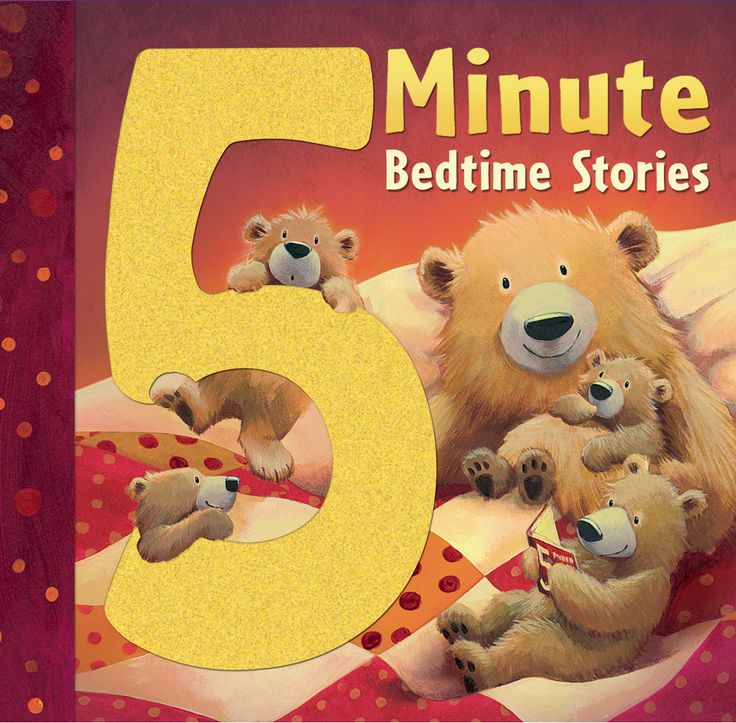
Finally, she was brave enough to pluck a whisker from the lion, and she took it to the medicine man. The medicine man accepted the whisker from her and threw it into the fire.
“Why did you do that?” asked Leeya. “I worked hard for a full year to get that whisker.”
“You worked hard,” said the medicine man. “You were patient, gave the lion what it needed, and gained its trust. Is it any harder to do the same for a young boy who misses his mother?”
Then Leeya understood. There were no shortcuts, but patience, love, understanding, and perseverance would get her where she wanted to be.
Swapping Places
This ancient tale is as relevant today as it was when it was first told. Everybody’s job may seem easy until you have to do it yourself.
Long ago, there was a family. The man went out every day to work on the farm, and the woman stayed in the house, working to look after the children and the home.
One day the farmer came home and complained the house was a mess, the baby was crying, there was no butter, no bread, and his dinner wasn’t ready.
“What do you do all day?” he asked his wife angrily. “I could do a better job in one day than you do all week.”
“Okay, then,” said his wife, “Tomorrow I will work on the farm, and you will look after the home.”
And that is what they did.
The woman went out early to work in the field, and the man began his day by feeding the chickens and putting milk in the churn to make butter.
But the baby started crying, so he went to pick him up. While the man was shushing the baby, their toddler ran into the kitchen, knocked over the churn, and milk spilled everywhere.
The man started to clean up the mess but realized he hadn’t given the children their breakfast. He began to make breakfast, but he’d forgotten to close the door when he fed the chickens, and now they were in the house, leaving feathers and poop everywhere.
And so it went on, all day. Every time he tried to do something, the farmer found other things went wrong.
When the woman returned from the fields, she found the house covered in feathers and chicken poop. The children were hungry and dirty and had run through the milk leaving a sticky, smelly trail. She found her husband sitting on the bed with a crying baby.
The children were hungry and dirty and had run through the milk leaving a sticky, smelly trail. She found her husband sitting on the bed with a crying baby.
“I am sorry, dear wife,” he said, “I cannot believe all of the things you have to juggle while you work hard at home every day. I will never complain again.”
And he didn’t. Not only that, on the days he came home to no food, he would cook supper for the family, help with the children, and churn the butter for the next day.
Growing For A King
Growing For A King, a Chinese cautionary tale, is an excellent place to begin talking about the dangers of peer pressure.
An old king had no children, so he held a competition to find the next leader.
He decreed that every child who wanted to try would be given a seed. They had to go home and nurture the seed for one year. At the end of the year, the grower of the best plant would be the new leader.
Heng entered the contest and took a seed home. She put the seed in the best soil, watered it carefully, and gave it just the right amount of sun.
She put the seed in the best soil, watered it carefully, and gave it just the right amount of sun.
By the end of the first month, other children in the town had tiny sprouts, but Heng did not. By the end of the third month, all of the other children had little, bushy plants, but still, Heng had nothing.
The other children made fun of Heng, telling her she could never be the leader because she couldn’t even grow a tiny plant.
Heng swapped the soil and the pot. She tried everything she could think of, but at the end of the year, she still had nothing.
The last day of the contest arrived, and all of the children took their plants to the palace, except Heng. She sat at home and cried, but her parents said she should be proud of her hard work and took her along to the judging.
The king walked up and down, judging the beautiful, luscious plants; some of them even had fruit. Then he arrived at Heng.
“Where is your plant?” asked the king.
Through her tears, Heng said, “I worked very hard. I gave the seed my best soil, watered it every day, put it in just the right amount of sun, and brought it in from the cold. But nothing I did could make the seed grow.”
I gave the seed my best soil, watered it every day, put it in just the right amount of sun, and brought it in from the cold. But nothing I did could make the seed grow.”
“That’s right,” said the king. “I gave everyone seeds that had been boiled and dried. None of them could grow into plants”.
“You are the only honest child who was strong enough to admit your seed wouldn’t grow, the king continued. “That makes you our new leader.”
The Stonemason’s Wish
The moral of this story is to be careful what you wish for and that you should appreciate what you have.
There was once a stonemason who was unhappy with his life.
“I wish I were the king,” he said, and suddenly he was.
The stonemason soon discovered that the king always had people asking him questions and that he had to work when he wanted to rest.
“I wish I were the sun,” said the stonemason. “The sun is powerful and doesn’t get told what to do.”
And suddenly, he was the sun. But the stonemason soon discovered the clouds could block the sun’s power.
“I wish I were a rain cloud,” said the stonemason. “They are powerful enough to block out the sun.”
And suddenly, he was a raincloud. As he rained down on the earth, the stonemason tried to change the shapes of the rocks.
“I wish I were powerful enough to change the shape of rocks,” said the stonemason, and suddenly he was a mason again, holding a chisel, ready to carve the stone.
“I am glad to be a stonemason again,” he said. “I can change stone into beautiful things, and that is all I need.”
Mousey Merchant
An Indian tale, Mousey Merchant is a classic “underdog makes good” story that your child may enjoy.
In the city, there was a wealthy merchant. He would lend people money for their business, and in return, he took some profits.
Mousey was a poor boy who asked the merchant for a loan.
“How will you make money?” asked the merchant. “You have no business and nothing worth taking if you do not pay me back.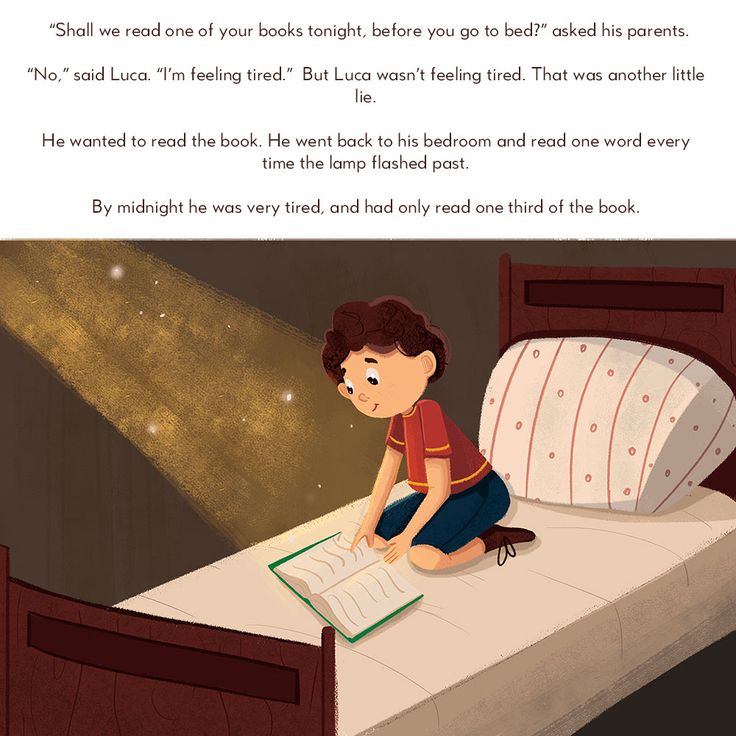 ”
”
“You’re called Mousey, so have this dead mouse,” said the merchant, and he and his friends laughed.
Mousey took the dead mouse, gave it to someone with a pet cat, and in return received two handfuls of chickpeas.
He ground the chickpeas, filled his only jar with water, and waited by the road, under a tree.
A group of woodcutters came by, and Mousey gave them the food and drink in return for two pieces of their wood. He sold the wood and bought four handfuls of peas and another jar.
The next day the woodcutters swapped four pieces of wood for his food and drink. Mousey kept two pieces and traded two for more supplies. This went on for months until the rains came and the woodcutters could not work, and wood was in short supply.
Mousey sold his spare wood for a lot of money and bought a store. Over the years, slowly, he built up a business and made sure to help others who nobody else was willing to support.
One day he was invited to the merchant’s house. He declined the invitation and instead paid the merchant back his “loan” by sending him a dead mouse and a second one as “interest.”
He declined the invitation and instead paid the merchant back his “loan” by sending him a dead mouse and a second one as “interest.”
Pumpkin In A Jar
Pumpkin in a Jar teaches that there is always a solution to a problem, even when it seems impossible.
There was once a troll who lived under a bridge. From time to time, he would reach up to someone crossing the bridge, pull them down to his cave, make them look after him and his home, and use his magic to make them stay.
One day he grabbed a girl who was more clever than the rest.
“You have to challenge me to your impossible task, and if I complete the task, you have to let me go,” said the girl. “The rules of magic say so.”
Every troll has one, but only one, impossible task he can set. If someone completes the task, he has to let them go.
“Here is a jar,” the troll said. “You must grow a pumpkin in the jar and bring it back to me at the end of the fall. But, the pumpkin must be in the jar, and the jar and pumpkin must be whole and undamaged.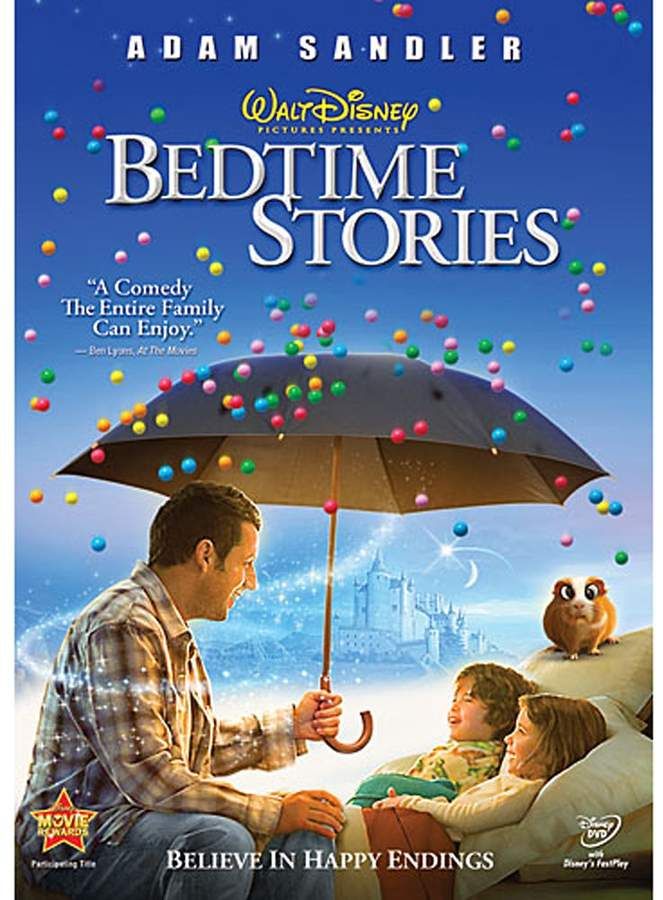 ”
”
At the end of the fall, the girl came back and handed the troll his jar. It was the same jar he gave her; it was undamaged, and inside was a whole, intact pumpkin.
The troll was very angry, but a deal was a deal, and he had to let her go.
The girl told everyone in the village:
“If the troll catches you, ask for his impossible task. Take his jar, place it over a pumpkin flower, and tie it to the vine. The pumpkin will grow inside the jar, and just before it is big enough to break the jar open, cut the pumpkin from the vine — it will stop growing.”
And so, the troll was never again able to keep anyone captive to do his housework.
The Importance of Bedtime Stories
Telling a child a bedtime story is much more than sharing a tale. Bedtime stories are important because they help to:
Build Bonds
Any time you spend giving your child your full attention in a positive way will help to reinforce your relationship. Your child may not remember the stories when they are older, but they will remember the feeling of having you sit beside the bed with them.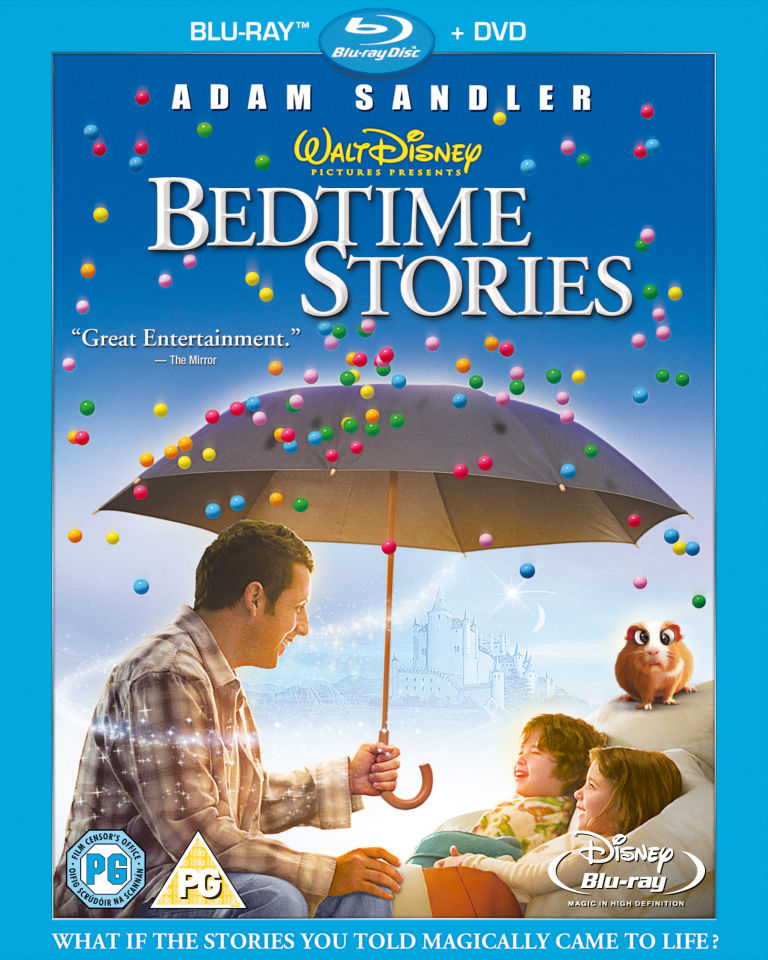
Promote Literacy
When you share a bedtime storybook with your child, you are introducing the joy of reading. You also create a loving, caring feeling they will associate with books long after they have grown and flown the nest.
Develop Language Skills
As your children listen to stories, they absorb a more expansive vocabulary and learn how to use those words to express themselves.
Inspire Creativity
Hearing stories, especially those that involve people, places, and situations they would not normally encounter, can spark your child’s imagination. It can encourage them to envision things beyond their own experiences.
What Makes a Good Bedtime Story?
A good bedtime story has characters your child can relate to or understand. It will have a little excitement or tension, but not so much that it will keep your child awake.
Most of the best bedtime stories have a moral or character who overcomes some kind of adversity. Your child will learn they shouldn’t give up.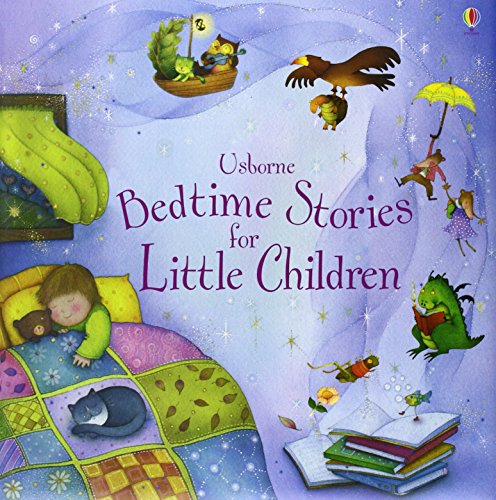
Tips for Making Storytime More Interesting
Bedtime stories can be more interesting if you elaborate on the basics. Give plenty of details about people and places, and use plenty of voices and facial expressions to convey emotion.
You can also use quiet voices and louder voices when telling different parts of the story.
And So To Sleep
Spending time with your child before they go to sleep, sharing stories, and giving them your undivided attention, is a fabulous way to end their day. It also builds warm, happy memories for the two of you.
In years to come, they may not remember the details of the stories, the voices you used, or the faces you made, but they will remember how sharing that time together made them feel.
Feedback: Was This Article Helpful?
Thank You For Your Feedback!
Thank You For Your Feedback!
What Did You Like?
What Went Wrong?
Bedtime Stories | Free 5 Min Bedtime Stories for Kids Online Bedtime Stories
The Classic fairytale of Cinderella: a young girl, mistreated by her step-mother and step-sisters, who finds out that dreams really can come true.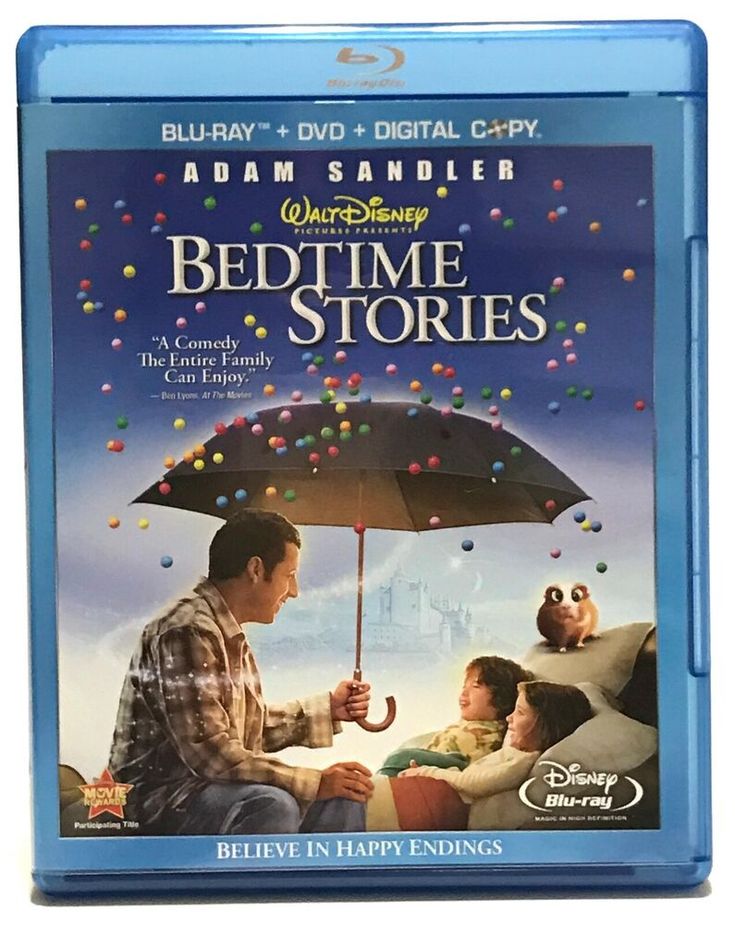
The Classic Fairytale Story of Snow White with a Modern Twist: Who is the “fair”est of them all? Snow White of course!
A Bedtime Story of Honesty, Courage and Truth. If Pinocchio is to become a Real boy he needs to learn how to be honest, brave and true.
A Grimm’s Brother Tale: A miller tells a tale that his daughter can turn straw into gold. A strange little man is willing to help…for a price. Guess his name and he will be gone…but what is his name?
Goldilocks and the Three Bears ~ Bedtime Stories for Kids. Goldilocks finds the three bears cottage in the woods. Should she make herself comfortable?
Hansel and Gretel Bedtime Stories for Kids. When Hansel and Gretel go in search of food, they find a gingerbread house. But who is inside?
A Story of Friendship, Love and Courage. Rapunzel’s Story ~ A Brothers Grimm Fairy Tale. An evil witch has trapped Rapunzel in a tower. Can her long hair or love save her?
A Story of Courage, Justice and Self-Awareness.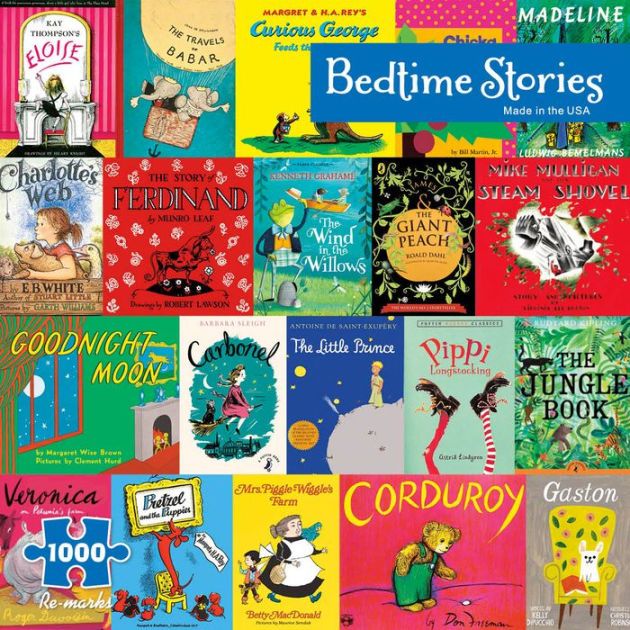 Merlin the Magician places a magic sword in a stone…whomever can pull it out is the rightful king.
Merlin the Magician places a magic sword in a stone…whomever can pull it out is the rightful king.
A Bedtime Story of Acceptance and Self-Awareness. A Mama Duck is proud when her six ducklings hatch from their eggs. But one duckling does not look like the others? Is he truly an Ugly Duckling?
The classic Brother’s Grimm fairytale that sparked the Disney adaptation.
A Story of Courage, Learning and Love. The Classic fairy tale: The Little Mermaid falls in love with a prince on shore and she makes a deal with the Sea Witch to become human. But without her voice, how can the prince fall in love with her?
This Classic Folktale is adapted from the original story of “Aladdin” from The Arabian Nights. Aladdin, the Genie and the Magic Lamp work to impress the princess who wishes to be a commoner.
A Story of Courage, Kindness to Animals and Learning. The Classic Tale of a male deer, Bambi, his mother and his adventures learning in the woods.
A Story of Charity, Compassion and Justice, from England.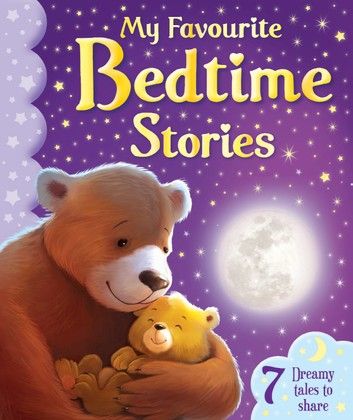 Robin Hood takes part in an archery contest thrown by the Sheriff of Nottingham. Will he realize its a trap before it is too late? One of the many Tales of Robin Hood.
Robin Hood takes part in an archery contest thrown by the Sheriff of Nottingham. Will he realize its a trap before it is too late? One of the many Tales of Robin Hood.
This is the Legend Tale of Maui the Demi-God from Moana. It is part of our Classic Bedtime Stories for Kids Collection. It has been adapted from the Tales of Maui as well as Disney’s version of Moana.
A Bedtime Story in Simple English for Kids. A toy rabbit learns that through a child’s love it can become real.
The Classic Tale of the Snow Queen: Gerda and Kai struggle to fight the Snow Queen and find the balance between Good and Evil.
The Classic Fairy Tale of Sleeping Beauty. Princess Aurora has been cursed by Maleficent. When she pricks herself on a spinning wheel on her 16th birthday, she is put into a deep sleep for 100 years. Who can save her?
Bedtime Story for Kids: The Gift of the Magi, A Christmas Story. Della and Jim wish to give each other the perfect Christmas present, but how will they come up with the money?
A Bedtime Story of Friendship, Courage and Acceptance. . The story tells of the time Pocahontas saved the life of settler John Smith from her father, Powhatan.
. The story tells of the time Pocahontas saved the life of settler John Smith from her father, Powhatan.
A Cinderella Story ~ Bedtime Stories for Kids
The Classic fairytale of Cinderella: a young girl, mistreated by her step-mother and step-sisters, who finds out that dreams really can come true.
Snow White and the Seven Dwarfs Story ~ Bedtime Stories for Kids
The Classic Fairytale Story of Snow White with a Modern Twist: Who is the “fair”est of them all? Snow White of course!
Pinocchio Story ~ Fairy Tale Bedtime Stories in English for Kids
A Bedtime Story of Honesty, Courage and Truth. If Pinocchio is to become a Real boy he needs to learn how to be honest, brave and true.
Beauty and the Beast Classic Tale ~ Fairy Tale Stories for Kids
The classic fairy tale of a beautiful woman and the monstrous beast.
Rumpelstiltskin ~ A Fairy Tale Bedtime Story for Kids
A Grimm’s Brother Tale: A miller tells a tale that his daughter can turn straw into gold. A strange little man is willing to help…for a price. Guess his name and he will be gone…but what is his name?
A strange little man is willing to help…for a price. Guess his name and he will be gone…but what is his name?
Goldilocks and the Three Bears ~ Bedtime Stories for Kids
Goldilocks and the Three Bears ~ Bedtime Stories for Kids. Goldilocks finds the three bears cottage in the woods. Should she make herself comfortable?
Hansel and Gretel ~ Bedtime Stories for Kids
Hansel and Gretel Bedtime Stories for Kids. When Hansel and Gretel go in search of food, they find a gingerbread house. But who is inside?
Rapunzel by the Brothers Grimm ~ Bedtime Stories
A Story of Friendship, Love and Courage. Rapunzel’s Story ~ A Brothers Grimm Fairy Tale. An evil witch has trapped Rapunzel in a tower. Can her long hair or love save her?
The Sword in the Stone: a King Arthur Legend of the Sword Story
A Story of Courage, Justice and Self-Awareness. Merlin the Magician places a magic sword in a stone…whomever can pull it out is the rightful king.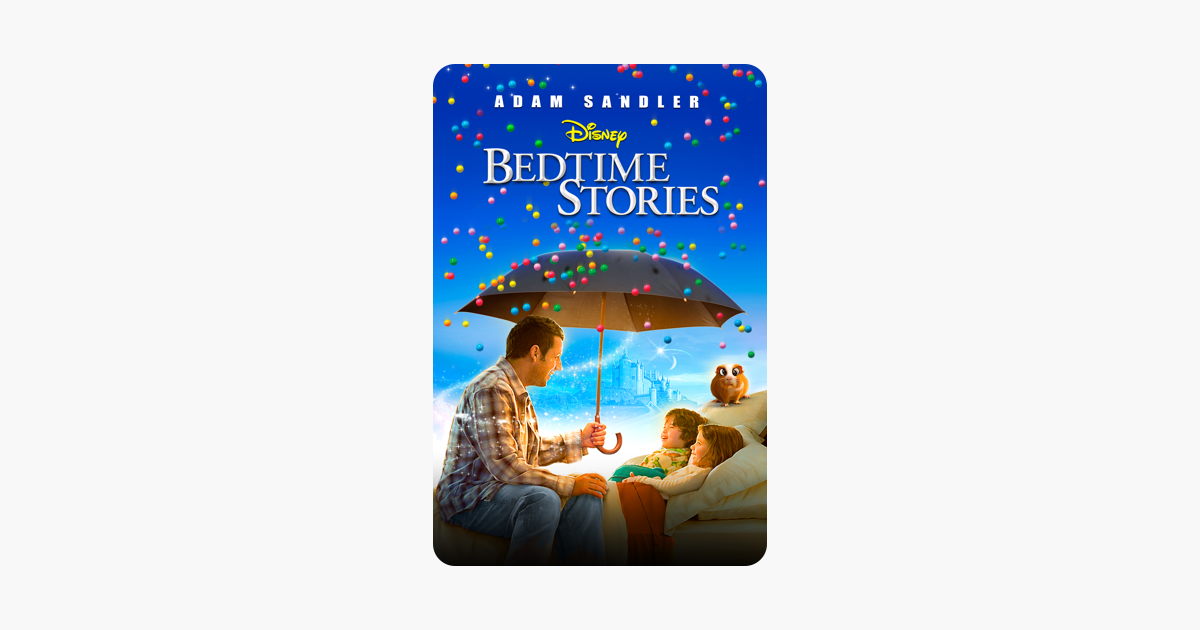
The Ugly Duckling Story ~ Fairy Tale Story for Kids in English
A Bedtime Story of Acceptance and Self-Awareness. A Mama Duck is proud when her six ducklings hatch from their eggs. But one duckling does not look like the others? Is he truly an Ugly Duckling?
The Frog Prince: The Story of the Princess and the Frog ~ Bedtime Stories
The classic Brother’s Grimm fairytale that sparked the Disney adaptation.
The Little Mermaid Story ~ Bedtime Stories for Kids in English
A Story of Courage, Learning and Love. The Classic fairy tale: The Little Mermaid falls in love with a prince on shore and she makes a deal with the Sea Witch to become human. But without her voice, how can the prince fall in love with her?
Aladdin and the Magic Lamp from The Arabian Nights ~ Bedtime Stories
This Classic Folktale is adapted from the original story of “Aladdin” from The Arabian Nights. Aladdin, the Genie and the Magic Lamp work to impress the princess who wishes to be a commoner.
Bambi Story: A Life in the Woods ~ Bedtime Stories for Kids in English
A Story of Courage, Kindness to Animals and Learning. The Classic Tale of a male deer, Bambi, his mother and his adventures learning in the woods.
Robin Hood and the Golden Arrow Story ~ Legend Stories for Kids
A Story of Charity, Compassion and Justice, from England. Robin Hood takes part in an archery contest thrown by the Sheriff of Nottingham. Will he realize its a trap before it is too late? One of the many Tales of Robin Hood.
Maui from Moana: Tales of the Demi-God ~ Legend Stories for Kids
This is the Legend Tale of Maui the Demi-God from Moana. It is part of our Classic Bedtime Stories for Kids Collection. It has been adapted from the Tales of Maui as well as Disney’s version of Moana.
The Velveteen Rabbit Story ~ Bedtime English Story for Kids
A Bedtime Story in Simple English for Kids. A toy rabbit learns that through a child’s love it can become real.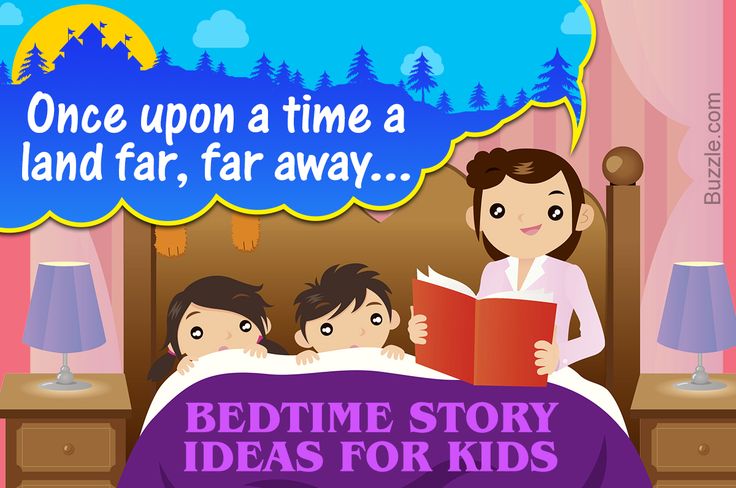
The Snow Queen Fairy Tale Story ~Bedtime Story for Kids
The Classic Tale of the Snow Queen: Gerda and Kai struggle to fight the Snow Queen and find the balance between Good and Evil.
Sleeping Beauty Fairy Tale Story ~ Bedtime Stories for Kids
The Classic Fairy Tale of Sleeping Beauty. Princess Aurora has been cursed by Maleficent. When she pricks herself on a spinning wheel on her 16th birthday, she is put into a deep sleep for 100 years. Who can save her?
The Gift of the Magi Story ~ A Holiday Story for Kids
Bedtime Story for Kids: The Gift of the Magi, A Christmas Story. Della and Jim wish to give each other the perfect Christmas present, but how will they come up with the money?
Pocahontas and John Smith Story ~ Folktales Stories for Kids
A Bedtime Story of Friendship, Courage and Acceptance. . The story tells of the time Pocahontas saved the life of settler John Smith from her father, Powhatan.
The Emperor’s New Clothes Story ~ Bedtime Stories
A Bedtime Story in Simple English for Kids. The Emperor is fooled into believing he is wearing magic clothes which can’t be “seen”.
The Emperor is fooled into believing he is wearing magic clothes which can’t be “seen”.
Mulan Story ~ Tale of Hua Mulan Bedtime Stories | English Story for Kids
A Bedtime Story in Simple English for Kids. Based on the “Ballad of Mulan” and Disney’s Mulan, this is a legend tale about a girl who goes in disguise as a boy and joins the army in her brother’s place.
Short Stories for Kids ~ Folk tales, Fairy Tales, Riddles, Legends, Poems
[…]
More From Stories to Grow By
You will find a story you love. Did you know that Stories to Grow By also provides a collection of World Tales? Folktales, fairytales, fables, and more! Whether you are looking for a story from your own country or culture, or a want to learn about a new one! We have you covered. Check out our special collection of world tales by clicking HERE.
Not Finding the Bedtime Story You Need?We are strive to provide more.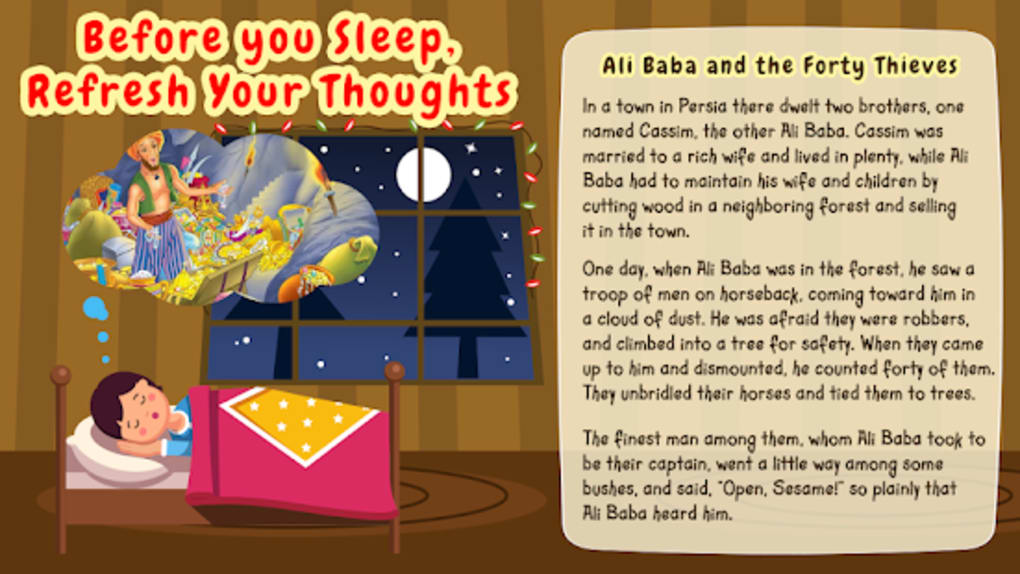 If you would like to see additional stories, content, and materials, or maybe even have some of your own you would like to share - drop us a line! Contact us directly by clicking HERE.
If you would like to see additional stories, content, and materials, or maybe even have some of your own you would like to share - drop us a line! Contact us directly by clicking HERE.
Join our blog by clicking HERE.
Teaching Resources from Stories to Grow By
In addition to our bedtime stories, we also offer a multitude teaching resources! This includes over 100 free bedtime stories, fairy tales, folk tales, readers theater play scripts, and performance notes!
You will find the bedtime stories and the materials you need for your classroom with Stories to Grow By.
Short bedtime stories for children
What do older children remember? Rare moments of trust and open dialogue with parents. Short bedtime stories are author's and folklore works of the world that will allow parents to get closer to their children. Reading kind and magical fairy tales, their general discussion will help to form the correct moral guidelines in the life of a child. Short bedtime stories will develop children's imagination, the ability to empathize and find answers to questions that concern children on their own.
Short bedtime stories will develop children's imagination, the ability to empathize and find answers to questions that concern children on their own.
Sort by: popularity of reading a review of the screening of
-
Business Muscovable people at night of children 4 years of children 9 years of Soldatal Slutdles 1 class of grade 2 class 4 classes 9000
Russian people's benthogs 4 years of flying children.
-
InstructiveRussian FolkTalesAbout animalsAbout the bearSovietFor children 2 years oldFor children 3 years oldFor kidsAbout good and evilFor schoolchildrenFor grade 1Younger group
-
Alexander Pushkinskazy at night of the verse of children 12 years of the children's saddles of the senior group of the preparatory group
-
Russian people's sales on the night of animals of children 2 years of children 3 gunstale kids good and Zlepropropyopro Grandmother Group 9000 9000 9000 2 Russian people -yaguAbout geeseFor schoolchildrenFor grade 1For kindergartenFor middle group
-
Hans Christian AndersenFor schoolchildrenFor grade 2Bedtime storiesFor children 6 years oldInstructiveAbout princessesFor children 8 years oldForeign writers
-
Russian people's sales on the night of the Komkotkoye bear of children 2 years of fat, Toldlya Tolstoy Dobre and Powerful Group
-
Russian folk priest -Durakaskazykazy at the night of the waves of Konyatolstoy - Russian folk senior schoolboy 2 class 9000 9000 9000 9000 9000 9000 Russian FolkTales for the nightSoviet HouseholdFor children 2 years oldFor kidsInstructiveYounger group
-
Alexander Pushkinskovskazovskazy at night fish -owned children 8 years of schoolchildren 2 classes 2 class of children's Sadamwrozhnate group
-
Brothers of the Grimmzarba writers at the night of animals of children 3 years of children 4 years of schoolchildren of 2 classes of children's seducide and schools of the middle group
9000 9000 9000 9000 9000 9000 9000 9000 9000 9000 9000 9000 9000 9000 9000 9000 9000 9000 9000 9000 9000 9000 9000 9000 nightIn verseFor children 4 years Korney ChukovskyAbout the flyFor kindergartenFor the senior group -
Charles Charles Perrodigating writers at the night of animals Volkadlya Volkadlya Children 3 Letdo children 4 years of baby granny, grademers 1 class of class 3 of the middle group of the middle group
Show another
90,000 for children 5-6 years oldInternational socio-cultural project by Natalia Faustova
Tweet Share Like Send
The age of 5-6 years is considered the most beloved and fertile for the authors of children's fairy tales.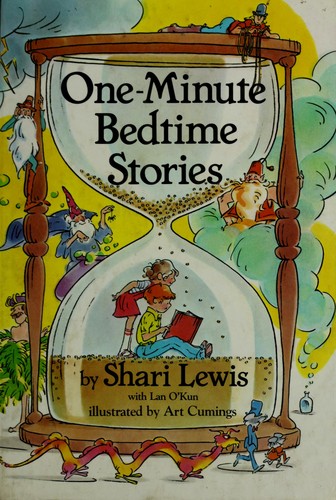 At this age, children's imagination is gaining full strength. In the course there is an active word creation, inventing whole new worlds and translating them on paper, in plasticine or constructor. Children of this age love to watch and listen to fairy tales, some even begin to read them on their own, taking the first steps towards constant reading.
At this age, children's imagination is gaining full strength. In the course there is an active word creation, inventing whole new worlds and translating them on paper, in plasticine or constructor. Children of this age love to watch and listen to fairy tales, some even begin to read them on their own, taking the first steps towards constant reading.
Fairy tales for children aged 5-6 differ from fairy tales for toddlers:
- Kind, but not always. A motive of the terrible, villainous appears, which the hero does not always manage to defeat on his own.
- Complex, ambiguous characters. For example, Baba Yaga, who sometimes helps the protagonist cope with the task, and sometimes behaves like a real evil witch. Tales of Baba Yaga online you will find in a special section.
- Fictional, non-existent characters: wizards, dragons, ghosts, monsters and other fabulous creatures.
- An element of heroism, overcoming and struggle, requiring high moral qualities and physical effort.

- Emphasis on mutual assistance. The main character is now assisted by other secondary characters and creatures (animals, friends, old men, girls, inanimate objects). In return for a kind attitude, they give advice, quench thirst or hunger, help in hunting, searching and completing tasks.
- Diverse language full of descriptive adjectives and complex phrases. When reading and listening to folk audio tales, children often need the help of their parents in explaining a particular word or concept.
- Abundance of imagery, metaphors, brightness of what is happening. Some fairy tales are not suitable for bedtime reading, especially for sensitive, tender children who may have trouble falling asleep and have nightmares after listening.
At the age of 5-6 folklore is no less important than for kids. Heroic Russian folk tales about heroes , princes and fairy-tale creatures give an introduction to folk experience and a sense of belonging to it.